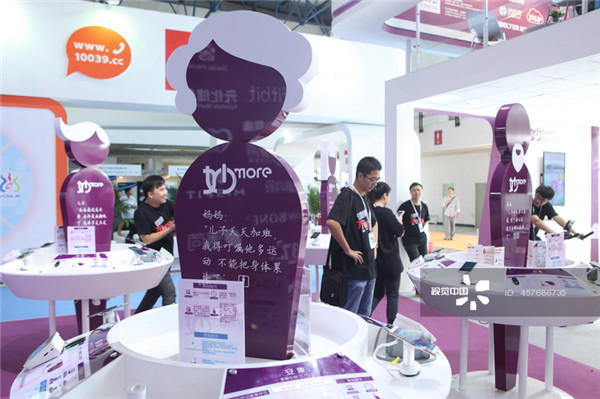In quest of the next big capital injection
 |
|
The exhibition stand of a health management app called More at the PT/Expo Comm China 2014. With the development of mobile technology, the mobile medical industry is developing rapidly. [Photo provided to China Daily] |
Song Yang, a 26-year old Shanghai resident, suffers from frequent headaches and insomnia. Though he has been planning to see a doctor for his problems, he was not sure as to whom he should consult.
Unlike most of his peers Song keeps himself abreast of the latest development sin the technology world and decided to test out one of the new medical-related applications on his smartphone. Song says that by using the app she was able to find solutions to her problems in a jiffy and at a fraction of the cost what he would have paid in a normal hospital.
"It is a very cool app. It saved a lot of time and money. Through this app, I selected a doctor, from the Shanghai Huashan Hospital at the deputy director level, and explained my condition to her. Not only did she listen to my complaint patiently, but also gave me helpful suggestions to reduce my ailment. I feel much better now and all I spent was just 1 yuan (16 cents) for the conversation," Song said with a smile.
Song is just one of the several million patients in China who are now turning to Web-based mobile platforms for solutions to their health-related problems.
With the development of mobile technology, the mobile medical industry has also developed rapidly. However, its growth has been stymied due to the current laws and regulations and still faces an uncertain future.
According to a report issued by iiMedia Research, a leading mobile Internet research and consulting firm, China had about 72 million users who availed mobile medical services in 2014, with the size of the market during the period rising to 2.95 billion yuan.
















